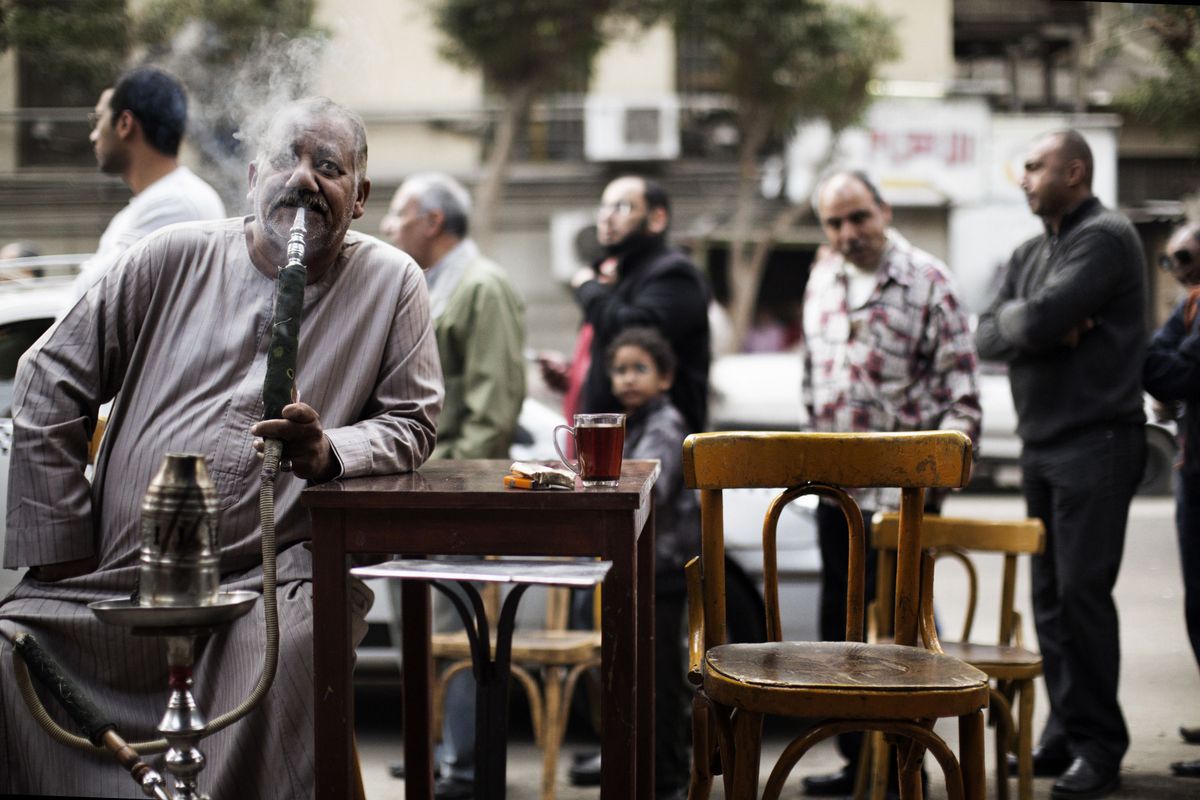By Sherif Elhelwa/ The Media Line
Sporadic riots recalling the early days of the Tahrir Square revolution were spreading throughout Egypt last weekend, but this time with thousands of police going on strike and refusing to confront the rioters.
Meanwhile Egyptians called on the army to step in to rule the country and topple the regime of President Mohamed Morsi. Slogans on posters reading “We will win the 25 January Revolution”, “We will get back our revolution from the thieves and impostors” and “Long live the Egyptians, and long live the army” indicated that some protesters would be happy to see the army step in to replace the police in overseeing security affairs.
Rioting was reported in Cairo, Port Said, Alexandria, Mansoura, Mahala and Assuit. The police withdrawal coincided with the court ruling on Saturday over last year’s Port Said violence in which more than 70 spectators at Port Said Stadium were killed over a football match. The court upheld death sentences for 21 of the rioters, and sentenced two police officers to 15 years in prison but pardoned seven others, angering fans who participated in the weekend riots and who hold the regime responsible for the Port Said violence.
Protests took place at several locations around Cairo, where the Egyptian Football Federation was set on fire and looted by alleged Al-Ahly football club protesters, state-run Al-Ahram reported. Most of those killed in Port Said last February were fans of that team.
Protesters in Port Said unsuccessfully tried to stop Suez Canal operations, Egyptian state television reported. However, ferries crossing the canal were prevented from doing so. Riots in the city also increased following the court ruling.
Meanwhile Egyptians moved to have the army take over control of running the country. Over the last week, the Egyptian media reported that thousands of Egyptians went to Defence Minister General Abdul Fatah Al-Sisi asking him to sign a power of attorney calling for the army to take over state affairs and topple Morsi’s regime.
The army has surrounded the security directorate buildings in several major cities including Cairo, Alexandria and Port Said after the police withdrew from police stations and stopped patrolling the streets early last Friday. Armed personnel carriers can be seen around the security directorate buildings, in a show that the army is now replacing the police forces in these cities in providing security.
The army issued a statement saying that they will protect government buildings and strategic installations near the Suez Canal.
Egyptians from Port Said were seen atop army tanks celebrating the army’s return to the scene with the troops.
Clashes between police and rioters protesting against the Muslim Brotherhood regime had been ongoing over the past two weeks, ending over the weekend. Currently not even traffic police are visible in several cities.
Abdallah Mash-hoor of the Muslim Brotherhood said that the police have not been cooperating for the past two weeks and refuse to carry out Muslim Brotherhood government orders. “They just don’t want to work with the Muslim Brotherhood,” he said.
Some policemen demanded the interior minister resign, another sign they are refusing to collaborate with the regime. “We don’t want to be the stick for the ones in charge, we don’t want to be a tool for the government to achieve its political objectives,” said one police officer who asked to remain anonymous.
Meanwhile, the Egyptian Sunni Islamist movement Al-Jamaa Al-Islamiya’s branch in Assuit issued a statement announcing its readiness to take over police activities and maintain security there instead of the striking policemen. “Al-Jamaa Al-Islamiya in Assuit announces its willingness to take full responsibility to secure the city in response to the police strike,” the statement said.
The organisation was considered a terrorist group before the 25 January Revolution. After toppling the regime of Hosni Mubarak, and under the Muslim Brotherhood regime, the Islamic group formed a political party and is now considered legitimate representatives of a sector in Egyptian society.
An informed Muslim Brotherhood source said that the security forces and the Muslim Brotherhood are discussing an option of bringing civilian groups in to replace the police in securing the cities. When police were absent from the street during the first week of the revolution, civilians took matters into their own hands and created civilians groups and armed themselves to protect their neighbourhoods.
While Egyptian police have dissociated themselves from the Morsi regime and defied orders to deal with the rioters, their withdrawal from the streets will see an increase in the crime rate, said Mohamed Gaafar, operations officer for Alex Private, a limousine company in Alexandria. “I had one of my cars get hijacked with a client in it the other day and I had to pay $3,000 to get the car and the client back,” he recounted. He also added his surprise that there are no traffic jams in the streets despite the absence of the traffic police.
Morsi’s regime has taken several steps recently to calm the angry protesters. Al-Ahram reported that Egypt’s Administrative Court last week overturned an election law passed by the Shura Council, postponing parliamentary elections that Morsi had set to begin on 22 April. The court decided that the elections law must be reviewed by the Constitutional Court to determine its constitutionality.
The move to bring the military back to the streets is intended to reduce the clashes between the police and civilian protesters, and is in response to the rioters’ calls for the army to return to the scene and govern Egypt.
Article was originally published on www.themedialine.org


